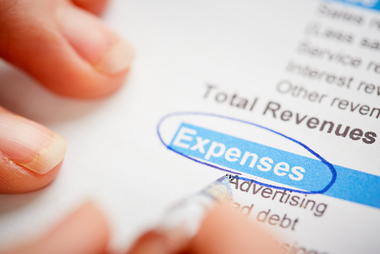Intro to Business Deductions

To be deductible, a business expense must be both ordinary — common and accepted in your industry — and necessary, helpful and appropriate for your trade or business. Generally, you cannot deduct personal, living or family expenses, but if you have an expense for something that is used partly for business and partly for personal purposes, you can divide the total cost between the business and personal parts and then deduct the business part.
If you use part of your home for business, you may be able to deduct expenses for such things as mortgage interest, insurance, utilities, repairs and depreciation. But you must meet these tests:
– The business part of your home must be used exclusively and regularly for your trade or business.
– It must be your principal place of business where you meet or deal with patients, clients or customers in the normal course of your trade or business. It can be a separate structure not attached to your home.
If you use your car exclusively for business, you can deduct vehicle-related expenses. If used both for business and personal use, divide your expenses based on actual mileage. Use the standard mile rate to figure your deduction. Go to IRS.gov/tax-professionals/standard-mileage-rates for the most current standard mileage rates.
You may be able to exclude all or part of the value of some fringe benefits from your employees’ pay. You may not owe employment taxes on the value of fringe benefits. Typically, no deduction is allowed for activities generally considered entertainment, amusement or recreation, or for a facility used in connection with such activities. But it can be deducted if treated as compensation to the recipient and reported on Form W-2 for an employee.
You can deduct various federal, state, local and foreign taxes directly attributable to your trade or business as business expenses. Generally, you can only deduct taxes in the year you pay them. This applies whether you use the cash or the accrual method of accounting.
You can generally deduct reasonable advertising expenses directly related to your business activities. Ordinary and necessary expenses paid for the cost of the education and training of your employees are deductible. Fees charged by accountants and attorneys directly related to operating your business are deductible as business expenses. However, legal fees you pay to acquire business assets usually aren’t deductible.
The costs of outplacement services you provide to employees to help them find new employment — career counseling, resume assistance, skills assessment — are deductible. Business expenses for heat, lights, power, telephone service, water and sewage are also deductible. However, any charges resulting from personal use aren’t.
Drilling down on business expenses
You can deduct the full amount of a business expense if it meets the criteria of ordinary and necessary and isn’t a capital expense. If your deductions for an investment or business activity are more than the income it brings in, you have a loss. There may be limits on how much of the loss you can deduct.
– Research and experimental expenditures generally must be amortized over a five-year period. A business cannot elect to deduct total research expenses in the current year.
– The cost of goods sold — Do you manufacture products or purchase them for resale? Then you must generally value inventory at the beginning and end of each tax year so you can determine your cost of goods sold.
– Capital expenses — Capitalize, don’t deduct, some costs that are a part of your investment in your business. But you may be able to recover the amount you spend through depreciation, amortization or depletion.
– Costs you spent though the business is unsuccessful — Costs incurred during a general search or preliminary investigation are personal and nondeductible.
– Be mindful of capital versus deductible expenses — You may be entitled to take a deduction of up to 20% of the aggregate amount of a qualified real estate investment trust and qualified publicly traded partnership income. You can claim this deduction on Form 1040 or 1040-SR, not on Schedule C. This deduction can be taken in addition to the standard or itemized deductions.
What to fill out
Form 1099-MISC, Miscellaneous Income, needs to be filed for each person you’ve paid at least $600 during the year in your trade or business. This can be for rent, prizes and awards as well as medical and health care payments.
Form 1099-NEC, Nonemployee Compensation, should be filed for each nonemployee you’ve paid at least $600 for services.
When you can deduct an expense depends on your accounting method. Under the cash method, you generally deduct business expenses in the tax year you pay them.
The IRS Gig Economy Tax Center on IRS.gov can help with meeting tax obligations by streamlining various resources to make it easier to find information about the tax implications for companies that provide the services and the individuals who perform them. Get tips and resources on deductible business expenses.